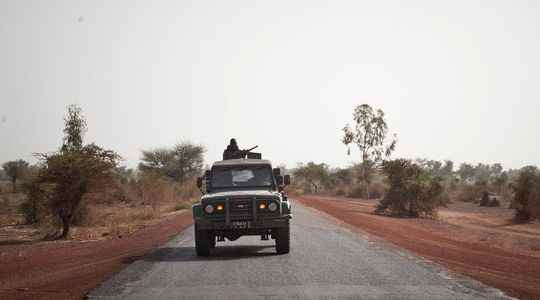Moura’s ordeal lasted a week. According to the organization Human Rights Watch, at least 300 civilian men were shot dead in this besieged small town in central Mali between March 27 and 31. At the manoeuvre, the Malian army and its Russian auxiliaries – “instructors”, according to the junta in power in Bamako, but rather mercenaries from the Wagner group in the pay of the Kremlin, according to Western chancelleries including France, which initiated the withdrawal of its Barkhane force from Mali at the end of February.
In Moura, as in Boutcha, 5000 kilometers away, in Ukraine, the executioners were therefore Russian, at least in part. In both cases, the survivors had to dig the mass graves themselves to bury the victims. And in both countries, voices denounce “war crimes”. The comparison stops there, but the involvement, in Ukraine as in Mali, of Russian forces (conventional or not) raises many questions. Is there a “Russian method”, as King’s College London professor Alex Clarkson suggests? “From Boutcha to Moura, a systemic culture of war crimes as a method of ‘normal warfare'”, comments the researcher on his Twitter account.
“In both cases, from a legal point of view, it is too early to qualify these acts as war crimes, warns Jelena Aparac, independent expert of the United Nations working group on mercenaries. It is necessary to collect a lot of elements : How did these people die (in bombardments? Shot? In combat?)? Who gave the orders? Were these abuses committed by the regular army or by non-state forces? ‘a systematic practice?’
“The worst atrocity in the conflict for a decade”
The Malian general staff, for its part, claims to have targeted “terrorists” in Moura and killed 203 fighters before carrying out “systematic cleaning of the entire area”. In short, a mission accomplished for Bamako, which congratulates its troops in a press release… when Human Rights Watch denounces “the worst atrocity reported in the armed conflict which has lasted for a decade in Mali.”
Because if the commune of Moura has been, for years, under the yoke of the jihadists of the Support Group for Islam and Muslims (affiliated with Al-Qaeda), there was also, this Sunday, March 27, day of fair at the cattle, ordinary herders, villagers and other traders in the marketplace. The shooters didn’t seem to make a difference.
The NGO denounces a “massacre committed by the army and foreign soldiers”. It recalls that Article 3 of the 1949 Geneva Conventions prohibits abuses against “persons not taking an active part in hostilities, including captured combatants and detained civilians”. It is also on this basis that a UN investigation concluded, in March 2021, that the French army blundered during a strike that targeted a wedding in Bounti, Mali.
Some of the 27 testimonies collected by Human Rights Watch report indiscriminate shooting and mention victims targeted because of their ethnicity – the Fulani community, where Islamist groups recruit a lot – or on the basis of their outfits alone. “Some men killed were really jihadists, says a man, but many others were killed simply because they had been forced by these same jihadists to cut their pants and grow beards”.
The specter of the Central African scenario in Mali
Such abuses were feared from the end of 2021, when the junta in power in Mali did business with these famous Russian “instructors”. Their record in other countries made us fear the worst. In the Central African Republic, these Putin spies (led by businessman Evgueni Prigojine, a close friend of the president) were recruited by the government in 2018. Officially to fight against the rebels. “We investigated their modus operandi, resumes Jelena Aparac. We observed that where they operate, there is progressively exclusion of all witnesses: impossibility for humanitarian workers to access victims, ban on access to journalists. At the same time, we have seen flagrant violations of human rights in these areas: extrajudicial executions, enforced disappearances, torture, rape.”
The disaster scenario could be confirmed in Mali where the abuses attributed to Wagner’s men are multiplying and where the public space is being locked up day by day. The slightest critical voice is tracked down. Last example to date, the opponent Oumar Mariko, wanted by the police since Monday, April 4 for having suggested that the Malian army had been guilty, in Moura, of “unacceptable” killings.
How many Moura will there be in Mali? Who will be able to document them, to bring one day, if necessary, the culprits to justice? “An independent investigation must shed full light on the circumstances of this operation, claims Drissa Traoré, coordinator of the joint program of the International Federation for Human Rights and the Malian Association for Human Rights. The Malian army does not should not oppose it, since it asserts that only jihadists were neutralized and that they were killed in combat. It must be able to substantiate these statements.” The UN peacekeeping mission, which is asking the authorities to access Moura to investigate, is still waiting for a green light.
